Chevy Suburbans have been manufactured since 1935. This popular SUV has become a staple in the Chevrolet product line and is one of the most popular car models from the brand. If you're considering purchasing one, you may be wondering how much you'll end up paying for gas. We have researched Chevy Suburbans, and this post will answer this question for you.
Currently, the 2021 Chevy Suburban is equipped with a 28-gallon gas tank. This means that if you're currently paying $3 for gas locally, expect to pay $84 to fill up your empty tank. Chevy Suburbans manufactured in 2018-2020 had a gas tank size of 31 gallons.
Due to their size, Chevy Suburbans have a fairly large gas tank, so if you're in the market for one, you may want to consider how often and how far you'll be driving regularly.
You also want to consider your local gas price averages, as this cost can add up fast as a monthly expense. Continue reading to learn more about Chevy Suburbans and the best type of gas to use in them.
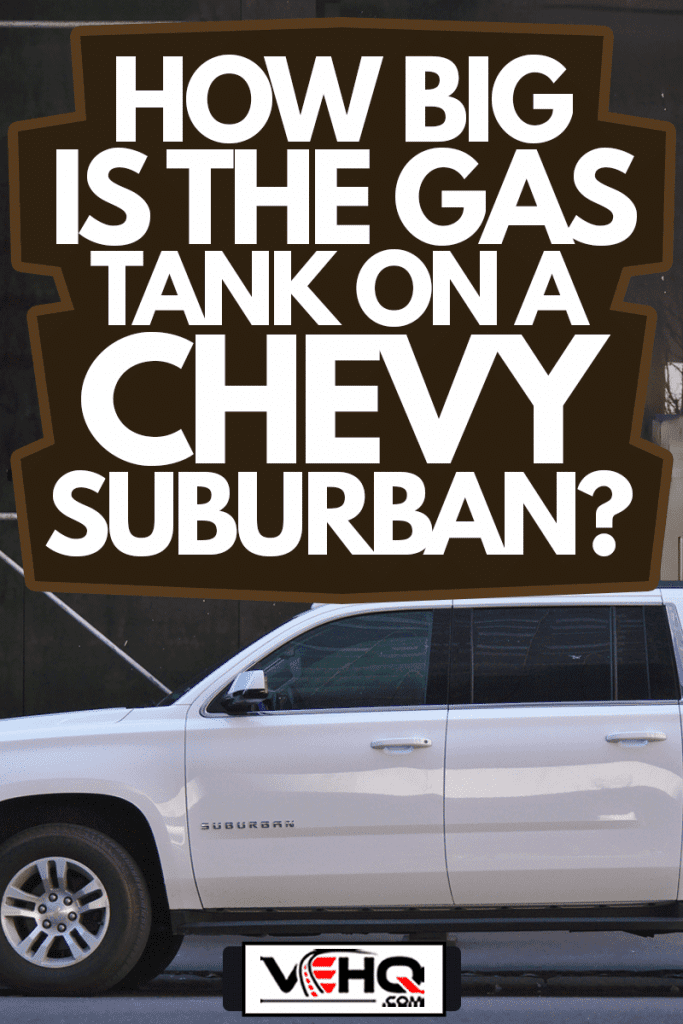
More on Chevy Suburban Tank Sizes
As mentioned earlier, Chevrolet Suburbans made three years ago had slightly larger gas tanks of 31 gallons. And before this, the gas tanks were even larger, with the most significant change happening after the 2001 truck, which had a gas tank of 38.5 gallons.
In 1999 the truck had a gas tank of a whopping 42 gallons. Surprisingly, the size of the truck hasn't changed that much, as the 1999 classic model had dimensions of 220″ L x 77″ W x 71-75″ H--the 2021 model has dimensions of 226″ L x 81″ W x 76″ H.
Unsurprisingly, the main reason for reducing the gas tank size is primarily due to rising gas costs. Like other SUV manufacturers, Chevrolet sought ways to reduce gas consumption to keep the trucks in line with the competition and lower Co2 emissions. Reducing the amount of money needed to keep these trucks moving continues to make them an attractive SUV to potential consumers.
How do you save gas in a Chevy Suburban?
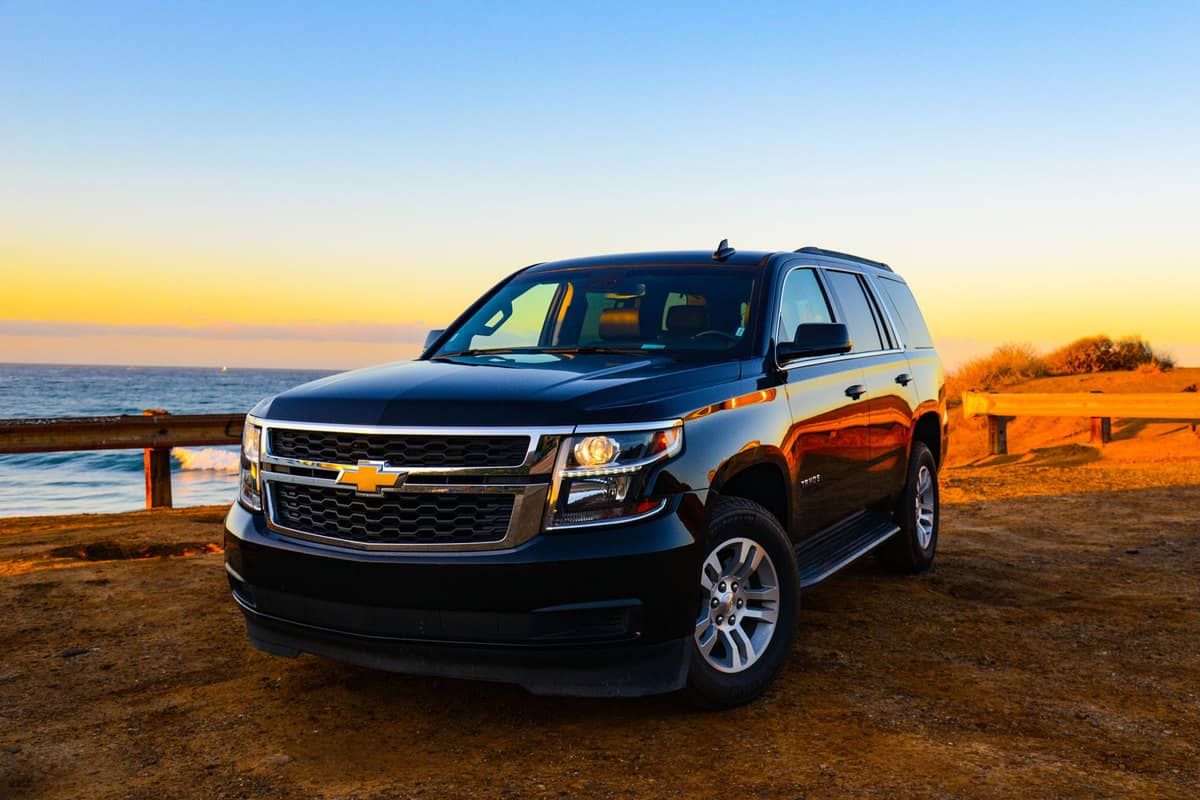
Chevy Suburbans require quite a lot of gas to run correctly, so it helps to know that there are ways that you can save on gas should you choose to purchase one. Let's look at the most common ways to do it.
Keep the truck as light as possible
Avoid keeping heavy items in your SUV when you don't need to. Unless you're hauling something or making a move, it's best to keep your vehicle as light as possible to reduce gas mileage.
Removing even 50 pounds from your vehicle can help reduce your gas usage by up to 1-2%. So to say, if there is something that you don't need for your day-to-day life, don't pack it in your truck.
Drive better
By driving more sensibly, you can reduce the amount of gas that your car consumes daily. This means refraining from rapid acceleration, speeding, and constant breaking.
These aggressive driving tactics are not only dangerous, but they can also drive up your gas utility per gallon. It's best to pay attention to how traffic flows when driving down highways and try to keep a constant speed instead of randomly accelerating.
Inspect the gas cap
The gas cap of a vehicle isn't something that we typically think of on a day-to-day basis. However, a damaged gas cap or one that is missing can cause your car to vaporize gas while it's in operation.
This means that you'll lose gas through the gas opening instead of through the engine's combustion process. It may be just a small amount, but every cent counts when you are driving larger vehicles.
Ensure that your tires have enough air
When your tires aren't properly inflated, it can increase the amount of gas that your car burns by anywhere between 1-3%. Late-model Chevy Suburbans come with a tire pressure gauge built within the vehicle to let you know when your tires can use a little air.
However, if you have an older model vehicle, you can purchase these gauges for a few bucks at your local gas station or automotive shop. Try to check your tire pressure regularly, especially during the spring and summer months.
Always use the preferred fuel for your vehicle
For Chevy Suburbans, this means using unleaded fuel. However, it may mean using premium or biogas for other vehicle models. You can improve your gas mileage consumption by up to 2 or 3% when you use the correct oil grade recommended by the manufacturer.
Plan out your week
Purchasing a vehicle means that you need a way to get from one destination to the other. However, planning your trips can ensure that you don't waste gas by retracing your route. For example, if you have to make a run to the grocery store and a nearby pharmacy, try to combine this into one trip instead of two separate ones.
Also, consider using alternative routes that have less traffic. Maneuvering and accelerating through stop-and-go traffic can increase your fuel consumption anywhere from 10% to 20%. This is why vehicles have an mpg rating (miles per gallon) for both city and highway miles.
Change your air filter regularly
Always replace your air filter every one to two months. This alone can save your truck on gas mileage by anywhere from 5% to 10%. Note that a dirty air filter can also damage the car's engine over time.
Dirty filters will restrict the airflow to the car's engine, hampering its performance and economy. Filter replacement is a service that is usually included in most oil changes or tire rotations. If not, always ask when you're car serviced.
Try to avoid idling for too long
Idling is another sneaky culprit that can slowly train your gas tank. You may not be able to avoid keeping your engine running if you're in traffic or stuck behind a slow-moving vehicle. However, it's best to avoid it whenever possible.
If you're stuck in gridlock traffic for over 5 minutes, it may be best to turn the engine off. Note that frequent starts aren't as hard on a car's battery and motor as on older vehicle models.
What type of gas does the Chevy Suburban use?
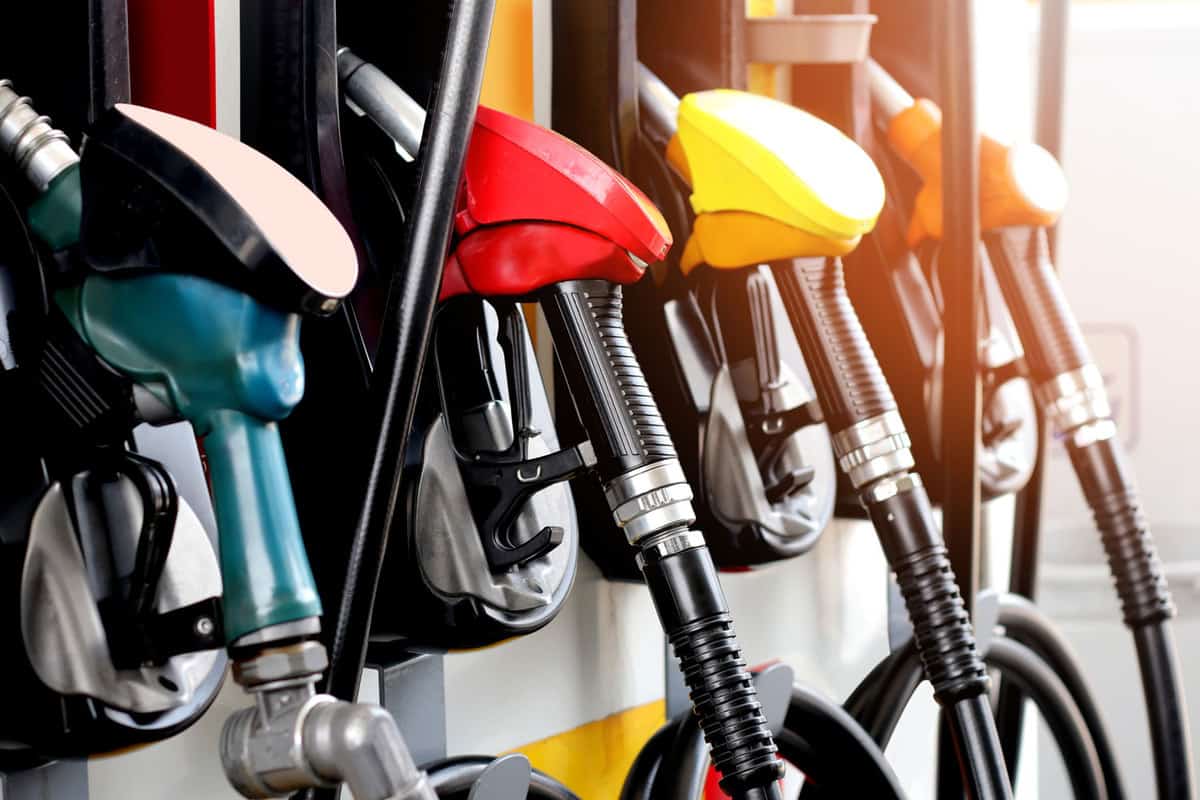
Chevy Suburbans require regular unleaded gas to function. The good thing about this is that even though you will need more to fill up the large SUV, you don't have to pay for premium gas to do it. Let's take a look at the differences between regular and premium gasoline.
Regular "Unleaded" Gasoline
Universally, regular unleaded gas is the most commonly used gasoline type. The reason is that it will work well in most vehicles and SUVs made in the US and worldwide.
Unleaded gas is much better for the environment because it doesn't contain lead. It also has an octane rating of 87, which is why you may often hear it referred to as simply "87" gas.
Leaded "Premium" Gasoline
On the other hand, premium gas is less common and generally used in luxury and more expensive vehicles. Its shares similarities with unleaded gas as both are combustible and made from crude oil. It, however, does contain a higher amount of octane with a level of 90 or more.
The biggest advantages of premium gas are that it causes less air pollution and generally keeps your vehicle's engine much cleaner.
The Difference Between Premium and Regular Gas
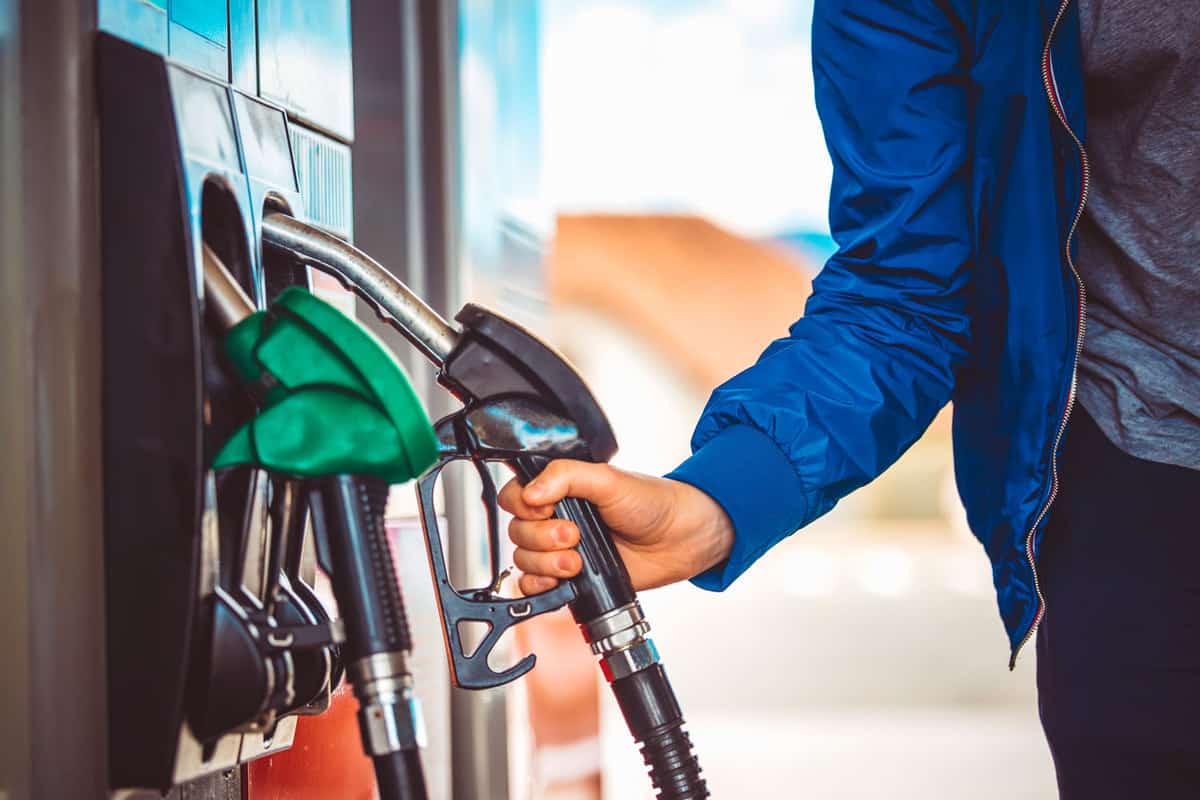
Price per gallon
On average, premium unleaded gas will typically be anywhere from 15-45 cents more expensive than unleaded gas. If you have a Chevy Suburban or other large vehicle, this cost can quickly add up if you travel long distances.
Engine Usage
There is also a difference in how the two types of gas burn inside the engine. Unleaded gas tends to burn way faster than premium gas, one of its biggest advantages.
This makes it ideal for car engines with low compression ratios. Vehicles that have a higher compression ratio will perform better with premium gas.
Octane Rating
Octane rating refers to how well fuel can hold up to improper combustion within a car's engine. The higher the octane rating, the better the fuel can perform. And high-performance fuel is typically better on your engine parts and reduces engine "knocking."
However, note that if your vehicle doesn't require premium gas, using it won't increase the longevity or performance of the car or engine. However, if your vehicle does require this type of gas, using unleaded gas may not be the best idea.
Granted, this likely won't cause your vehicle to shut down, but it can affect the engine performance over time. And if you hear any knocking coming from the engine, it's best to make the switch over to premium gasoline, especially if your vehicle has a turbocharger.
What is the mpg of the Chevy Suburban?
The current Chevy Suburban has an mpg of 15/19 for city and highway miles respectively.
Can you put 87 gas in a Chevy Suburban?
Yes. You can put 87 (aka "regular) gasoline in a Chevy Suburban.
Wrapping Things Up
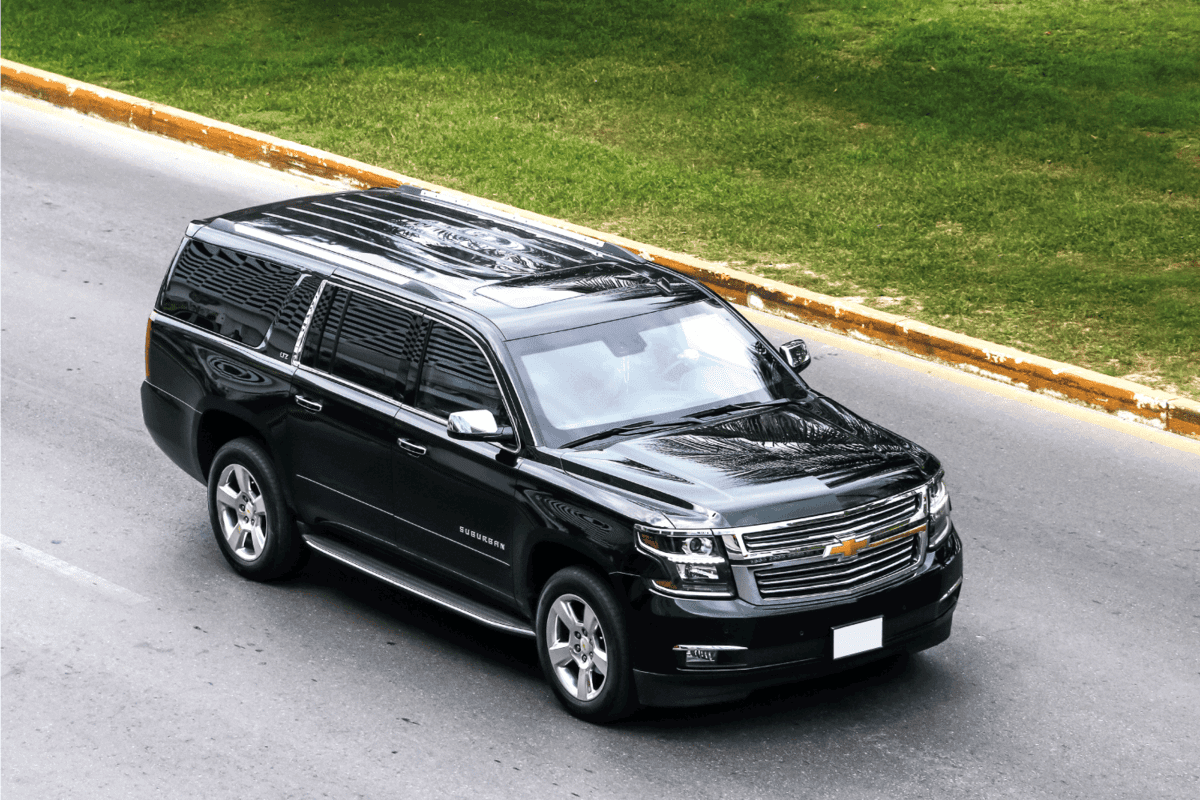
Chevy Suburbans are reliable SUVs that are perfect for hauling, road trips, and winter driving. However, if you're looking to purchase one, it's best to plan for your gas budget, as it can easily eat up your monthly living cost.
That being stated, there are ways to reduce your gas consumption, including planning your trips, driving sensibly, and doing good vehicle maintenance.
Before you go, be sure to check out our other posts:
